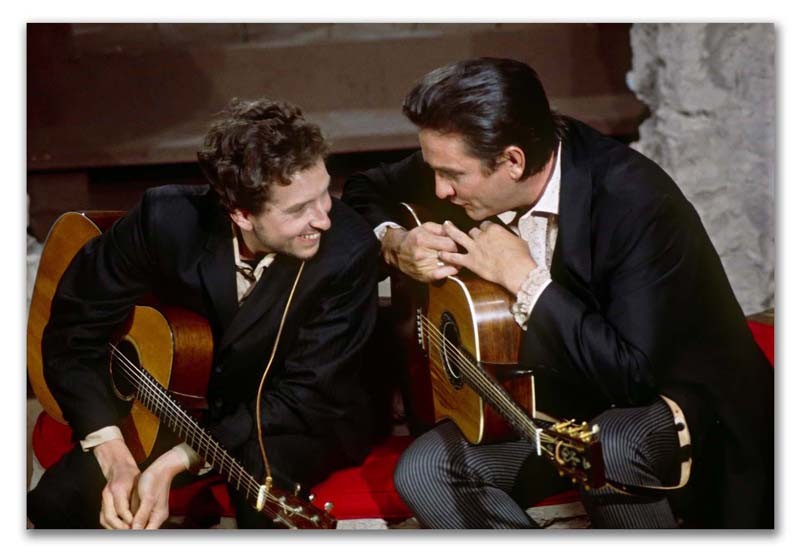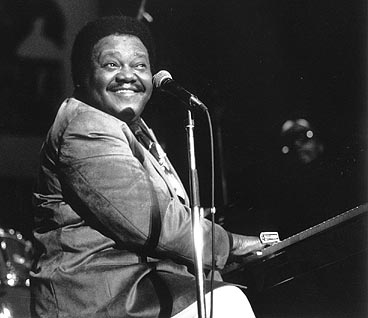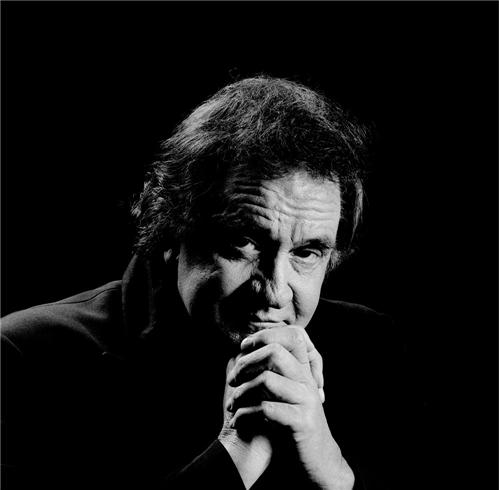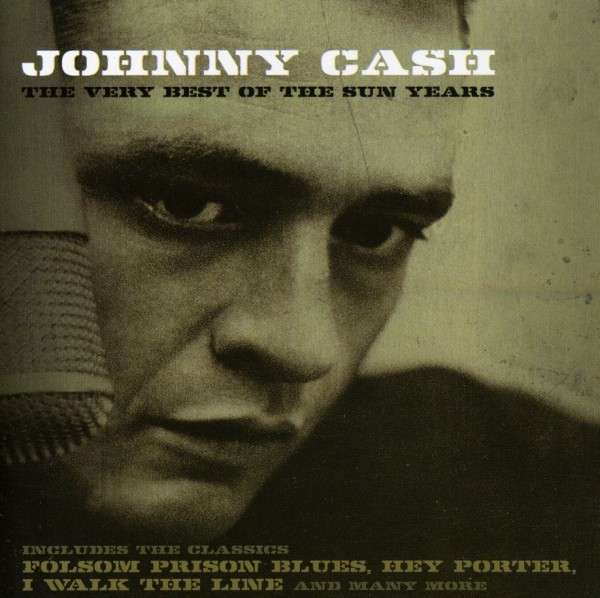OLD post … You’re being redirected to a newer version……
I love to go to the studio and stay there 10 or 12 hours a day. I love it. What is it? I don’t know. It’s life.
~Johnny Cash
You build on failure. You use it as a stepping stone. Close the door on the past. You don’t try to forget the mistakes, but you don’t dwell on it. You don’t let it have any of your energy, or any of your time, or any of your space.
~Johnny Cash
Lyle Lovett Inducts Johnny Cash into the Rock and Roll Hall of Fame:
I Walk The Line – 1956:
Wikipedia:
| Birth name | John R. Cash |
|---|---|
| Born | February 26, 1932 Kingsland, Arkansas, United States |
| Died | September 12, 2003 (aged 71) Nashville, Tennessee, United States |
| Genres | Country, rock and roll, gospel |
| Occupations | Singer-songwriter, musician, actor |
| Instruments | Vocals, guitar |
| Years active | 1954–2003 |
| Labels | Sun, Columbia, Mercury, American, House of Cash, Legacy Recordings |
| Associated acts | The Tennessee Three, The Highwaymen, June Carter Cash, The Statler Brothers, The Carter Family, Area Code 615 |
| Website | johnnycash.com |
John R. “Johnny” Cash (February 26, 1932 – September 12, 2003) was an American singer-songwriter, actor, and author who was considered one of the most influential musicians of the 20th century. Although he is primarily remembered as a country music icon, his songs and sound spanned other genres including rockabilly and rock and roll—especially early in his career—and blues, folk, and gospel. This crossover appeal won Cash the rare honor of induction in the Country Music Hall of Fame, the Rock and Roll Hall of Fame, and the Gospel Music Hall of Fame.

Johnny Cash & Bob Dylan – One Too Many Mornings:
Cash was known for his deep, distinctive bass-baritone voice, for the “boom-chicka-boom” sound of his Tennessee Three backing band; for a rebelliousness, coupled with an increasingly somber and humble demeanor; for providing free concerts inside prison walls; and for his dark performance clothing, which earned him the nickname “The Man in Black”. He traditionally began his concerts with the phrase “Hello, I’m Johnny Cash.”, followed by his standard “Folsom Prison Blues”.
Much of Cash’s music echoed themes of sorrow, moral tribulation and redemption, especially in the later stages of his career. His best-known songs included “I Walk the Line”, “Folsom Prison Blues”, “Ring of Fire”, “Get Rhythm” and “Man in Black”. He also recorded humorous numbers like “One Piece at a Time” and “A Boy Named Sue”; a duet with his future wife, June Carter, called “Jackson”; and railroad songs including “Hey, Porter” and “Rock Island Line”. During the last stage of his career, Cash covered songs by several late 20th-century rock artists, most notably “Hurt” by Nine Inch Nails.
Johnny Cash was one of the most imposing and influential figures in post-World War II country music. With his deep, resonant baritone and spare percussive guitar, he had a basic, distinctive sound. Cash didn’t sound like Nashville, nor did he sound like honky tonk or rock & roll. He created his own subgenre, falling halfway between the blunt emotional honesty of folk, the rebelliousness of rock & roll, and the world-weariness of country.
~Stephen Thomas Erlewine (allmusic.com)
Hurt:
Some awards & Honors:
His diversity was evidenced by his presence in three major music halls of fame:
- Nashville Songwriters Hall of Fame (1977)
- Country Music Hall of Fame (1980)
- Rock and Roll Hall of Fame (1992)
Only thirteen performers are in both of the last two, and only Hank Williams Sr., Jimmie Rodgers, Bob Wills, and Bill Monroe share the honor with Cash of being in all three. However, only Cash was inducted into the Rock and Roll Hall of Fame in the regular manner, unlike the other country members, who were inducted as “early influences.”
His pioneering contribution to the genre has also been recognized by the Rockabilly Hall of Fame. He received the Kennedy Center Honors in 1996. Cash stated that his induction into the Country Music Hall of Fame, in 1980, was his greatest professional achievement. In 2001, he was awarded the National Medal of Arts. He was nominated for an MTV Video Music Award for best cinematography for “Hurt” and was supposed to appear, but died during the night.
A Great collection of rare old video clips
Johnny Cash – The Man In Black – His Early Years
1. It Was Jesus
2. Suppertime
3. All Over Again
4. Give My Love To Rose
5. Pickin’ Time
6. I Was There When It Happened
7. Five Feet High and Rising
8. Big River
9. God Has My Fortune Laid Away
10. Heartbreak Hotel
11. I Got Stripes
12. Guess Things Happen That Way
13. Ways of a Woman in Love
14. You’re The Nearest Thing to Heaven
15. Frankie and Johnny
16. Don’t Take Your Guns to Town
–
Album of the day:
The Very Best Of The Sun Years (2001)
—
Other Feb 26:
- Antoine Dominique “Fats” Domino Jr. (born February 26, 1928) is an American R&B and rock and roll pianist and singer-songwriter. He was born and raised in New Orleans, Louisiana. Domino is French Creole and Creole was his first language. Domino was delivered at home by his midwife grandmother. Like most families in the Lower Ninth Ward, Domino’s family were new arrivals from Vacherie, Louisiana. His father was a well known violinist, and Domino was inspired to play himself. He eventually learned from his uncle, jazz guitarist Harrison Verrett. Fats released five gold (million-copy-selling) records before 1955. Domino also had 35 Top 40 American hits and has a music style based on traditional R&B ensembles of bass, piano, electric guitar, drums, and saxophone.
 –
– - William Melvin “Bill” Hicks (December 16, 1961 – February 26, 1994) was an American stand-up comedian, social critic, satirist, and musician. His material largely consisted of general discussions about society, religion, politics, philosophy, and personal issues. Hicks’s material was often controversial and steeped in dark comedy. In both his stand-up performances and during interviews, he often criticized consumerism, superficiality, mediocrity, and banality within the media and popular culture, describing them as oppressive tools of the ruling class, meant to “keep people stupid and apathetic”.
 –
– - Booker T. Washington White (November 12, 1909 – February 26, 1977), better known as Bukka White, was anAmerican Delta blues guitarist and singer. “Bukka” was not a nickname, but a phonetic spelling of White’s given nameBooker, by his second (1937) record label (Vocalion).

-Egil



